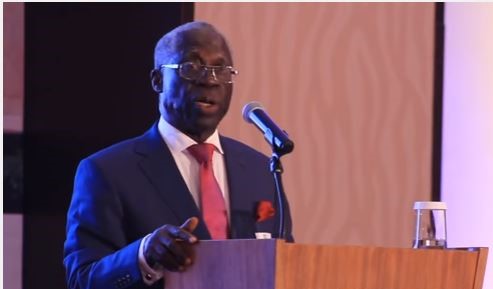Ghana’s Senior Minister has expressed the view that the $15 billion dollar resource-exchange deal with the Republic of China is the best way to support the government in achieving its developmental programs.
Speaking at the launch of a book ‘Africa in Search for Prosperity’ in Accra, Yaw Osafo-Marfo said, Ghana currently lacks the capacity to borrow: noting that the Chinese deal (contrary to the speculations that it is a loan arrangement) is part a new concessionary measure where the country, in return for funds to finance its huge economic development agenda, would exchange its natural resources with trade or development partners who are in need of them.
Asserting the commitment of the government to introduce economic development projects that will change the country’s industrial landscape and create thousands of jobs in the process, He said “we won’t borrow: we will find a way of finding resources to develop it [Ghana] by exchanging part of those things down there[referring to the nation’s natural resources]â€.
Also commenting on the deal at the occasion, Vice President of the Republic of Ghana – Dr. Mahamudu Bawumia, reiterated the resolve of the President Akufo – Addo administration to cut the country’s debt to GDP by 5% annually.
He hinted on the government’s decision to propose a law to Parliament that will make it mandatory to cut the national debt to GDP ratio by at least 5% yearly.
“We have to address this dance of one step forward and two steps backward. As a country we have to address itâ€, the Vice President said.
He added that the national debt reduction law "is the right thing to do for our country and for the future of our countryâ€.
However, there are still widespread concern over the Chinese deal as many hope that one form of external economic policy control, as has been witnessed during the current IMF extended credit facility programme, will not be replaced by a far more stringent funding plan that might greatly hurt the development potential of the country - within the period of its operation.





